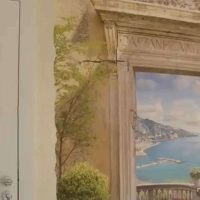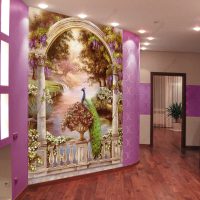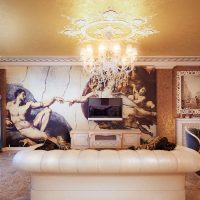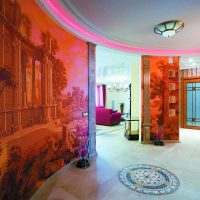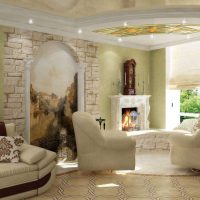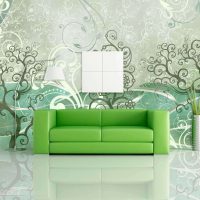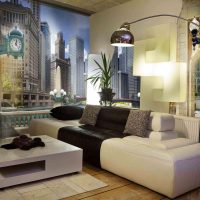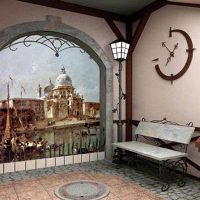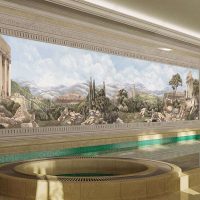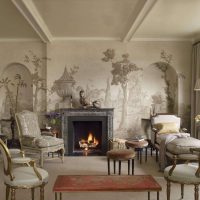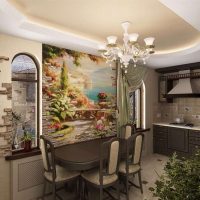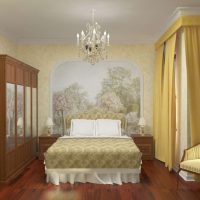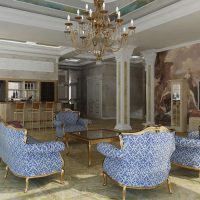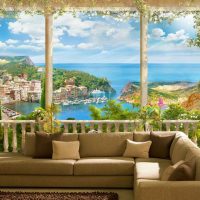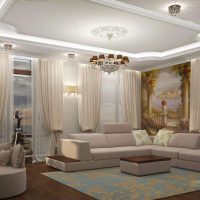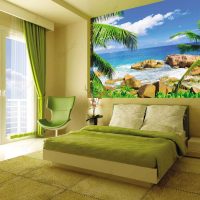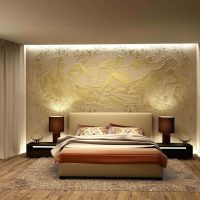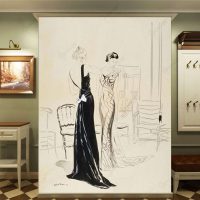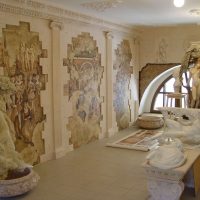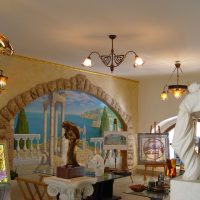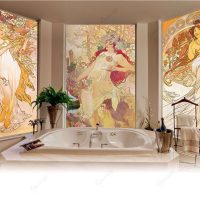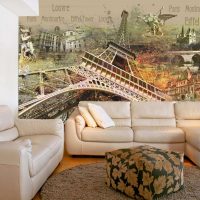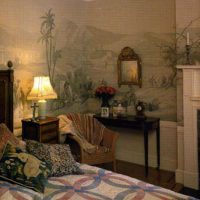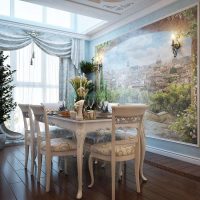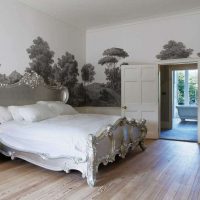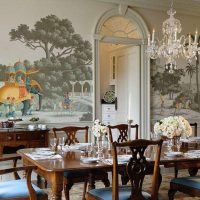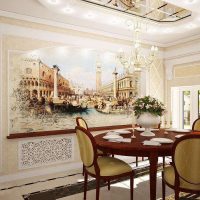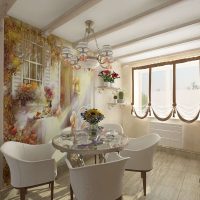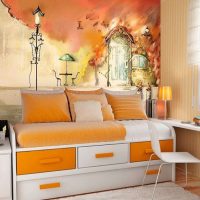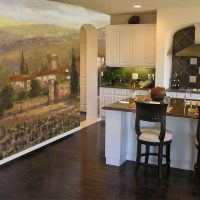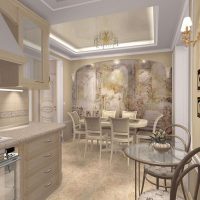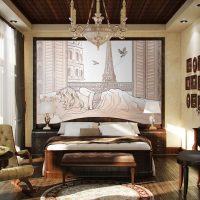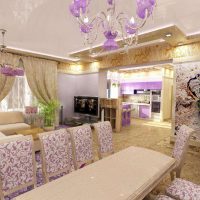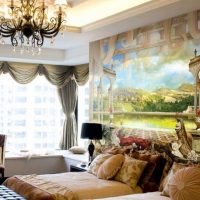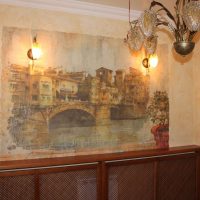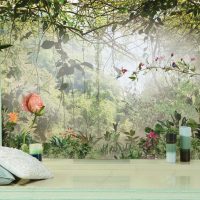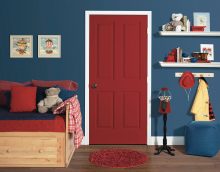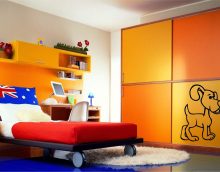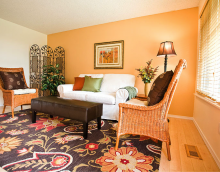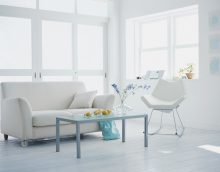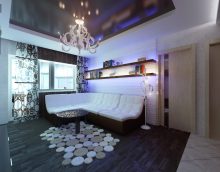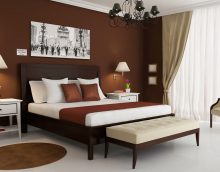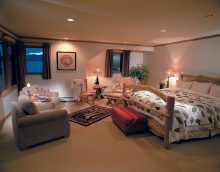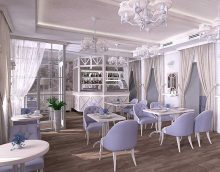Murals in the interior: manufacturing technology, advantages
The palace interiors impress with their grandeur. A mandatory attribute of such rooms are skillfully executed murals on the walls - murals. In city apartments, not so long ago there were furniture walls made of chipboard, and the room was decorated with ordinary wallpaper. Now frescoes in the interior are increasingly common. After all, decorating a wall in this way is not much more difficult than sticking ordinary photowall-paper at home.

Frescoes in the interior of the kitchen

Room design with murals on the wall.
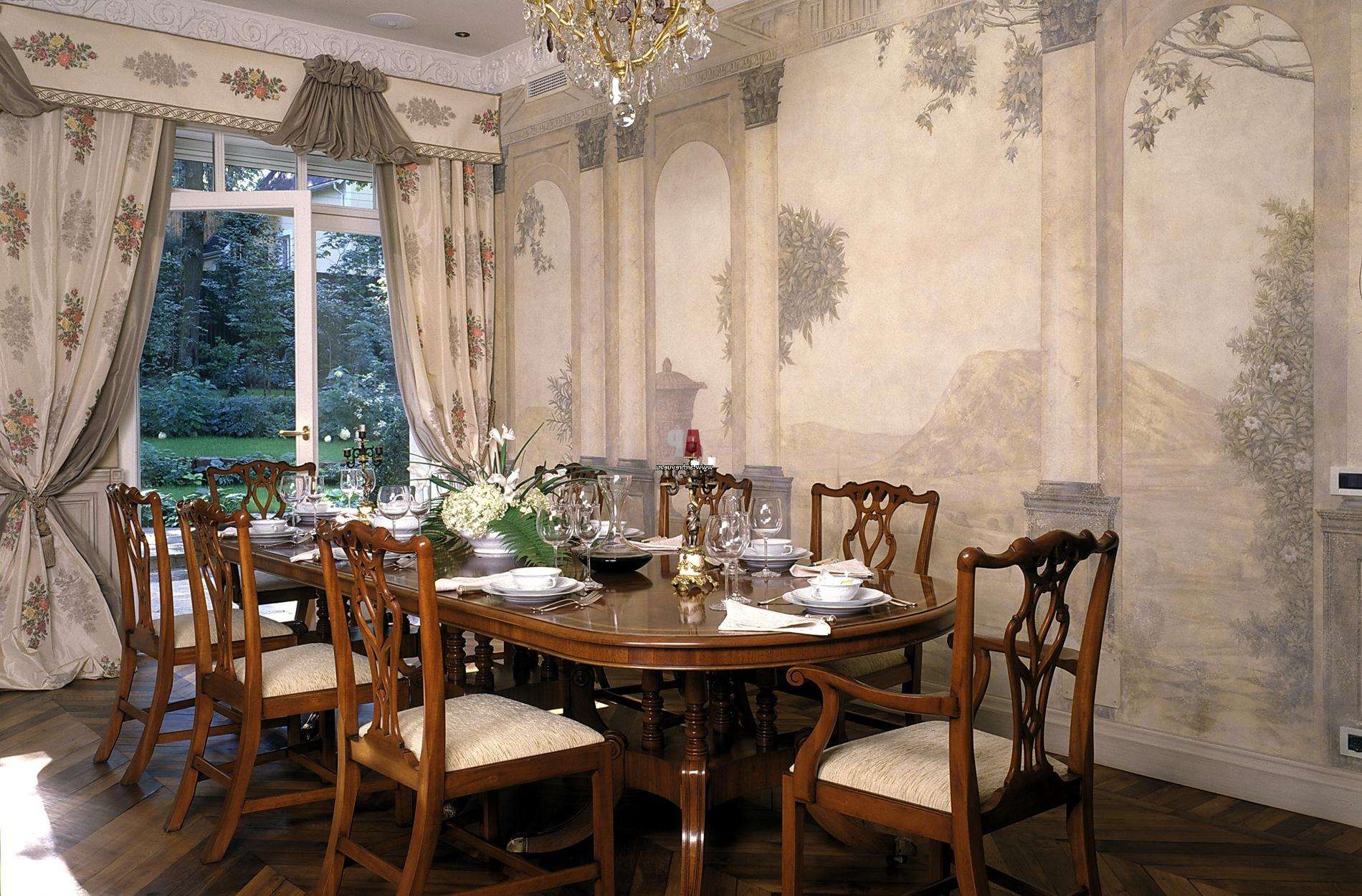
Living room interior with murals on the wall
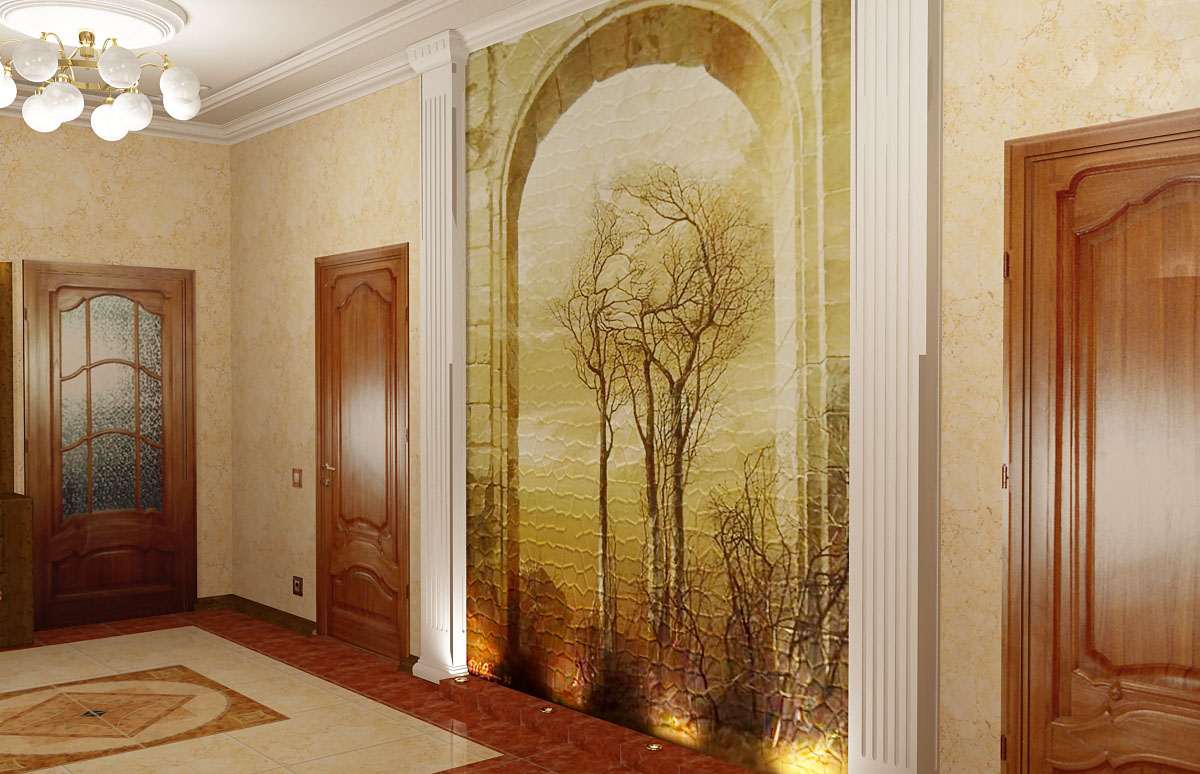
Murals with landscape on the wall

Content
Manufacturing technology
In the classical sense, a fresco is a type of painting, involving the artist applying paints on plaster. Building technologies have stepped far forward, now the range of frescoes has expanded significantly. You can even buy digital prints without paying for the services of a professional artist. You can arrange modern murals on the wall, floor or ceiling.
There are several types of frescoes:
- Non-woven - a thin layer of plaster is applied to the non-woven fabric. Of all the varieties, this one is the easiest to stick. The sheet is attached like ordinary non-woven wallpaper.
- On raw plaster - the classic option, the most expensive. The artist applies painting to the freshly putty. For work is given no more than a day, yet. The master must be a true professional, because you can’t make corrections on the wall.
- Dry plastering is the perfect solution for a kitchen or bathroom. High-strength plaster is applied, so the fresco in the interior does not deteriorate in the sun or from high humidity.
- On canvas is a very expensive way to decorate the interior. The artist paints a canvas coated with a primer, natural pigments. You can’t buy a ready-made version for the house, you have to call the master at home. The surface is artificially aged and coated with a protective wax coating.
- Craquelure or aging effect - decorative cracks and abrasions form on the image. The effect is achieved by adding marble chips.
- On a rigid basis - they make a picture with a solid base - from polymer, wood or ceramic. Since the design is quite heavy, you can not make a large image.
- On the sand - panels made of non-woven coated with fine-grained plaster are used.
The advantages of frescoes
Not everyone knows what murals in the interior often look better than ordinary wallpaper. If you need to get a stylish interior, then this type of decor will come in handy. The positive qualities of the frescoes are listed in the list below.
- Photo murals made by modern murals are difficult to distinguish from the original.
- Firms offer turnkey solutions, and also work with individual orders.
- They can visually increase the space.
- You can clean the walls with detergents without fear that the decorative coating will be damaged.
- They hold well on walls and ceilings.
- Modern technology allows you to print even complex images.
- High quality printing and artistic colors allows you to get a fresco in the interior, which will look stylish at any time.
- You can admire the fresco every day, it will retain impeccable aesthetic qualities for a long time.
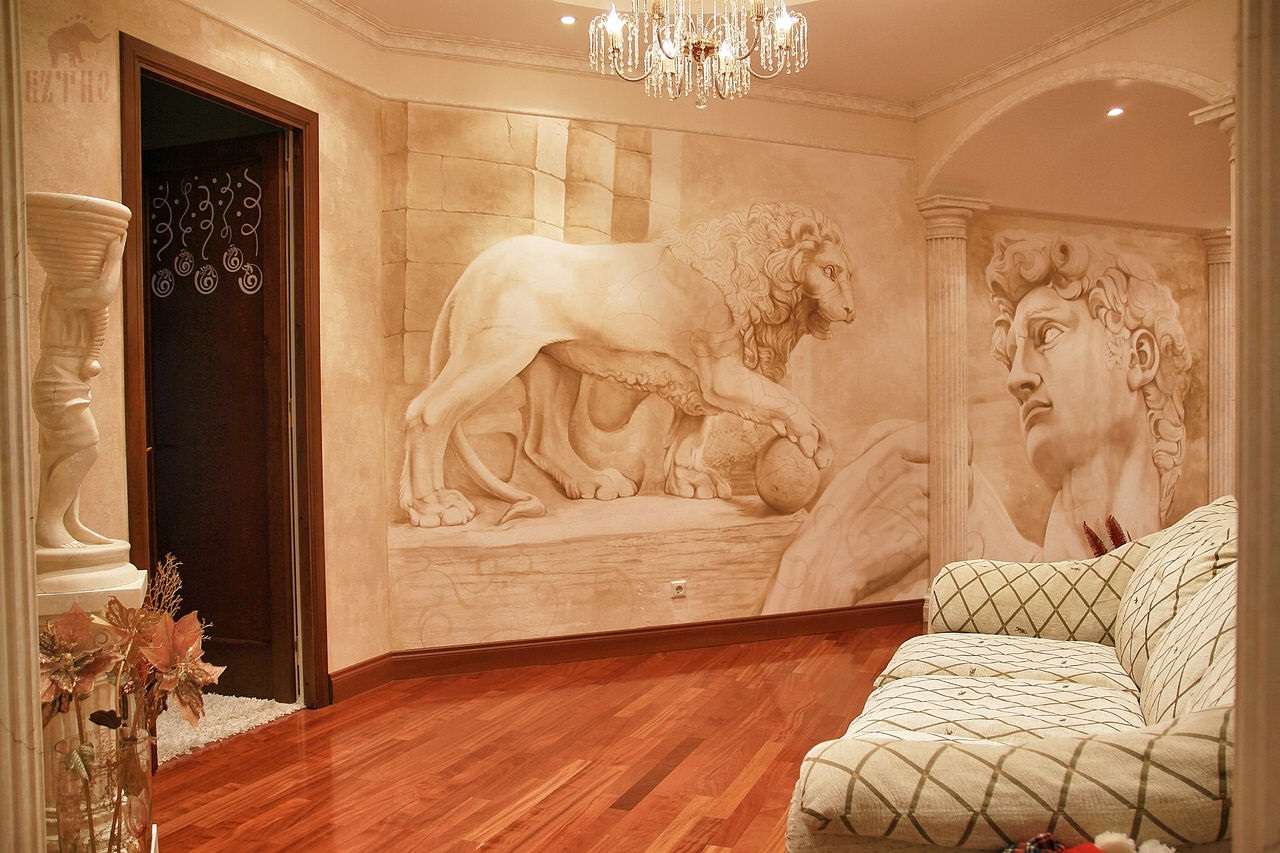
Murals with a lion in the interior
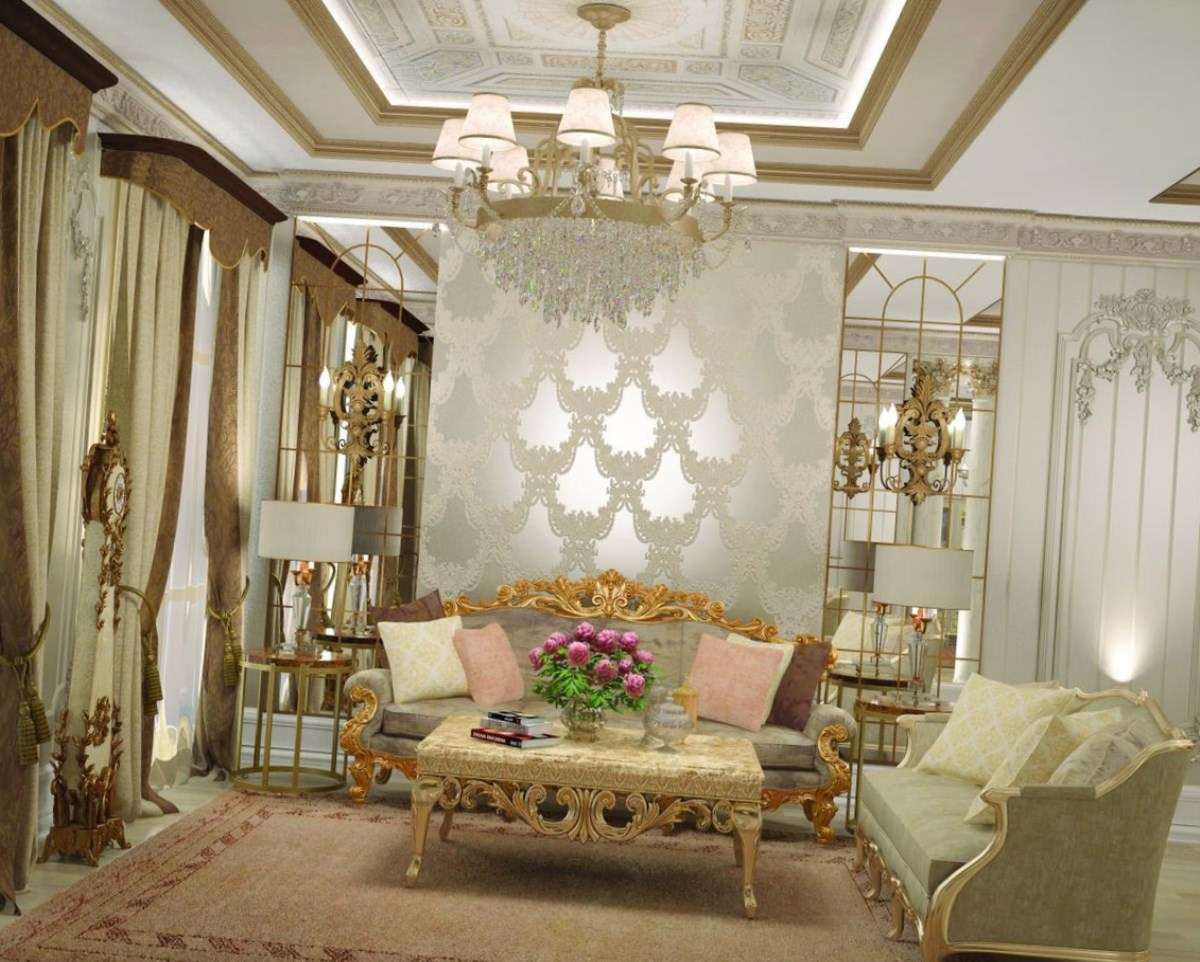
Living room with murals
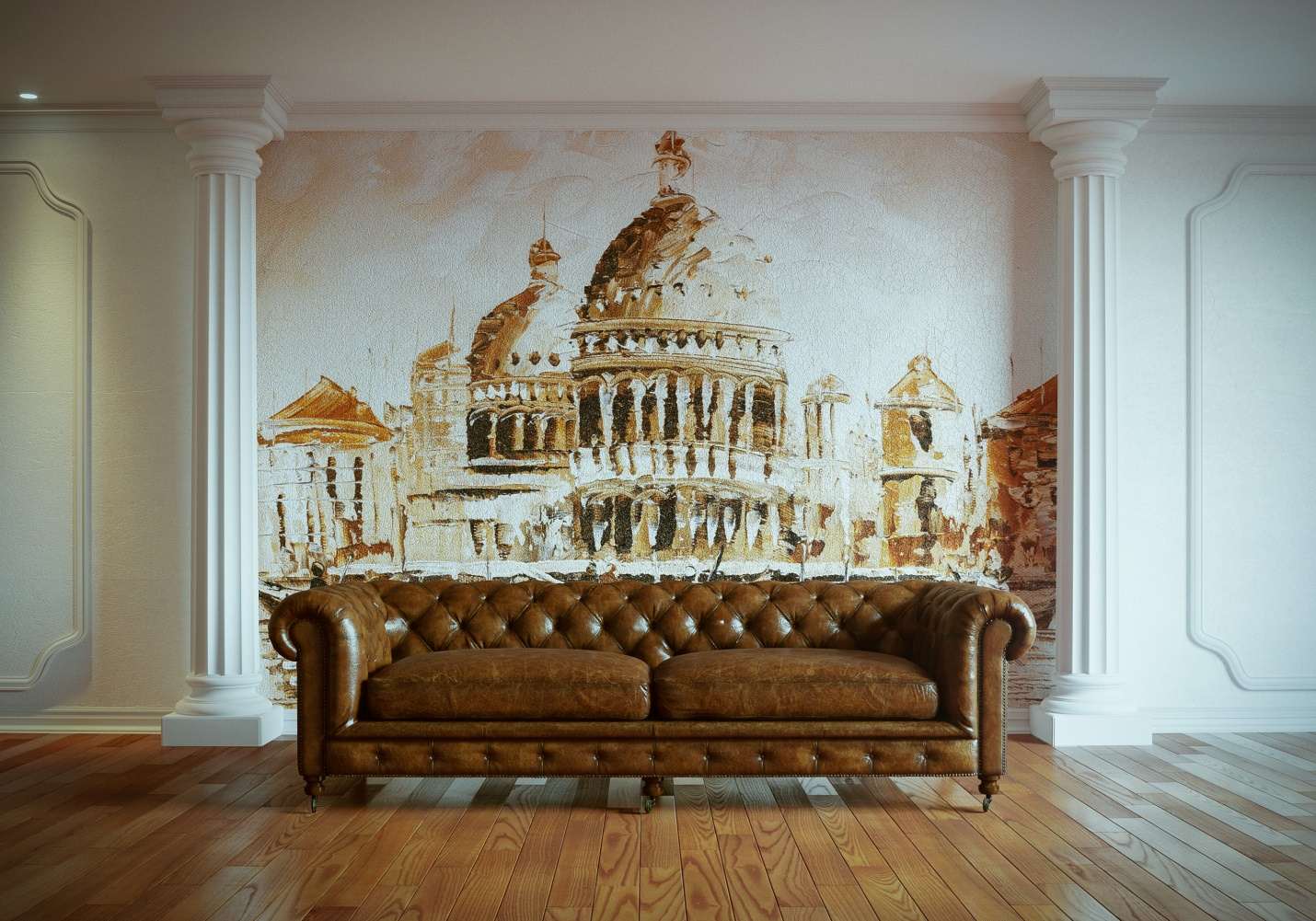
Frescoes in the interior of the room
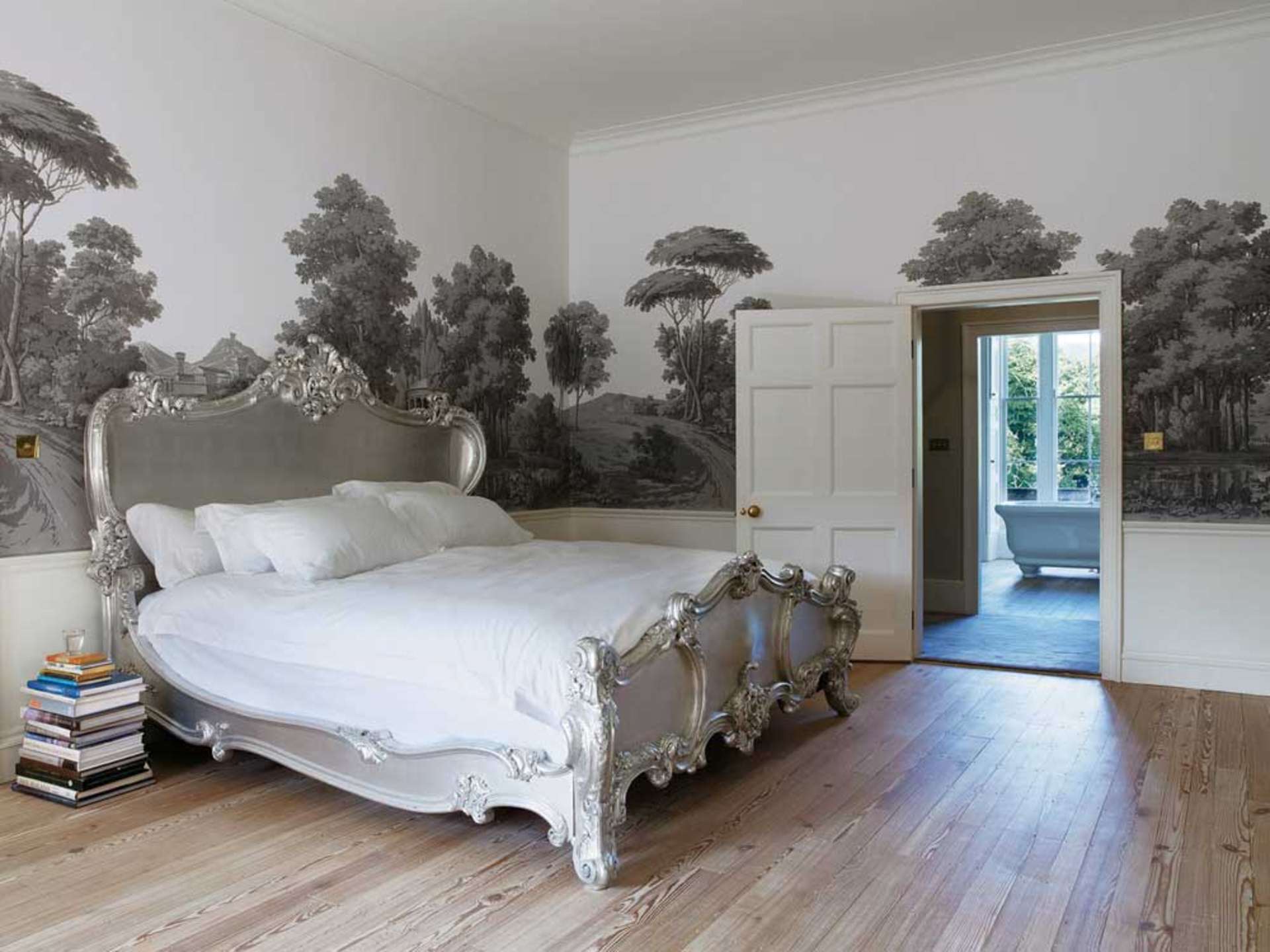
Frescoes in the interior of the bedroom with the image of trees

Kids room with murals on the wall
Views and Images
In addition to traditional painting, murals with photo printing are sold. They are printed on printers on an industrial scale or in limited quantities. Many people get such models, as they fit perfectly into the modern interior. The most popular and modern varieties are presented below.
- Reproductions - you can put a copy of the canvas of the famous painter in the whole wall.
- Classic - as in the days of kings. Now you can buy a fresco with an antique or religious plot. For an antique interior, miniatures that depict ladies in old dresses or scenes from life are suitable.
- A pattern or abstract drawing - most often performed on a stencil, will cost less than the classical method.
- Floral ornaments - will make a gloomy room with windows to the north look like a fragrant garden. Typically, such frescoes depict large inflorescences that will look good in a room with low ceilings.
- Landscape - there is unlimited scope for imagination. You can put an image with a cozy meadow, a sunny beach, wildlife, cliffs, forests, parks. The fresco in the interior looks particularly good with a false window that offers a breathtaking view.
- City - a street with houses will fill the room with energy, you can choose a small town with small houses or a large metropolis, for example, views of the Eiffel Tower in Paris are very popular.
Tip. To decorate the ceiling and walls in a palace style, you can frame the selected plot with a frame covered with golden paint.

Room design with murals

Beautiful murals in the interior

Corridor design with murals.

Frescoes in the interior of the apartment
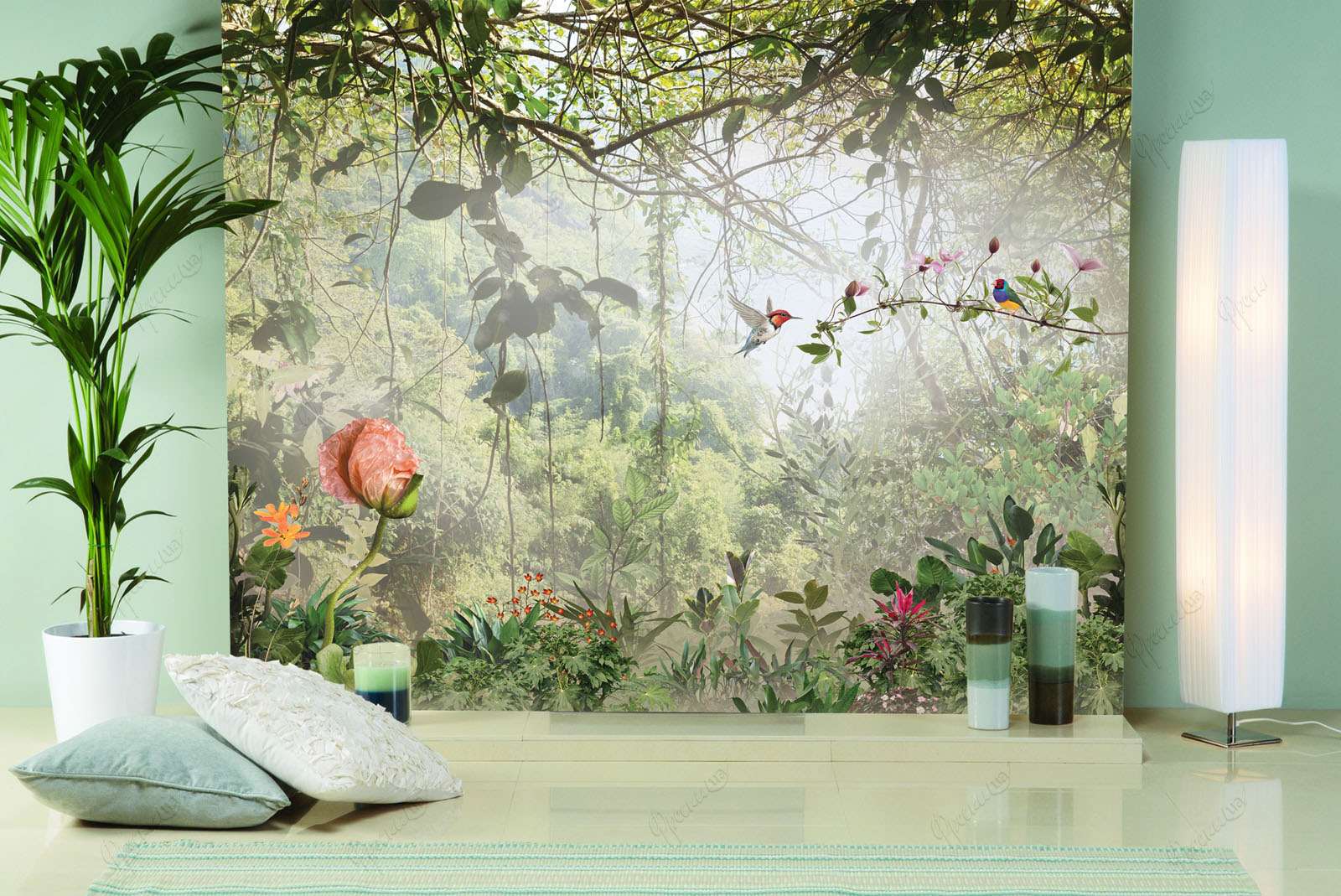
Murals on the wall with a drawing of nature
Use in the interior
Frescoes in the interior can serve as a backdrop for furniture or just set a positive mood. But much more often, these elements play a dominant role, set the tone for the entire room. You should consider the purpose of the room in which you plan to install the mural.
For a bedroom, restrained colors in pastel colors are most suitable.
In the kitchen, floral ornaments and warm shades will look good. It is advisable not to place the wall mural near the stove, as it may get dirty with drops of fat during cooking.
The fresco in the interior of the living room should correspond to the general appearance of the house and was liked by the household. But you can make it very bright and pompous, then you will always have the opportunity to impress guests or relatives.
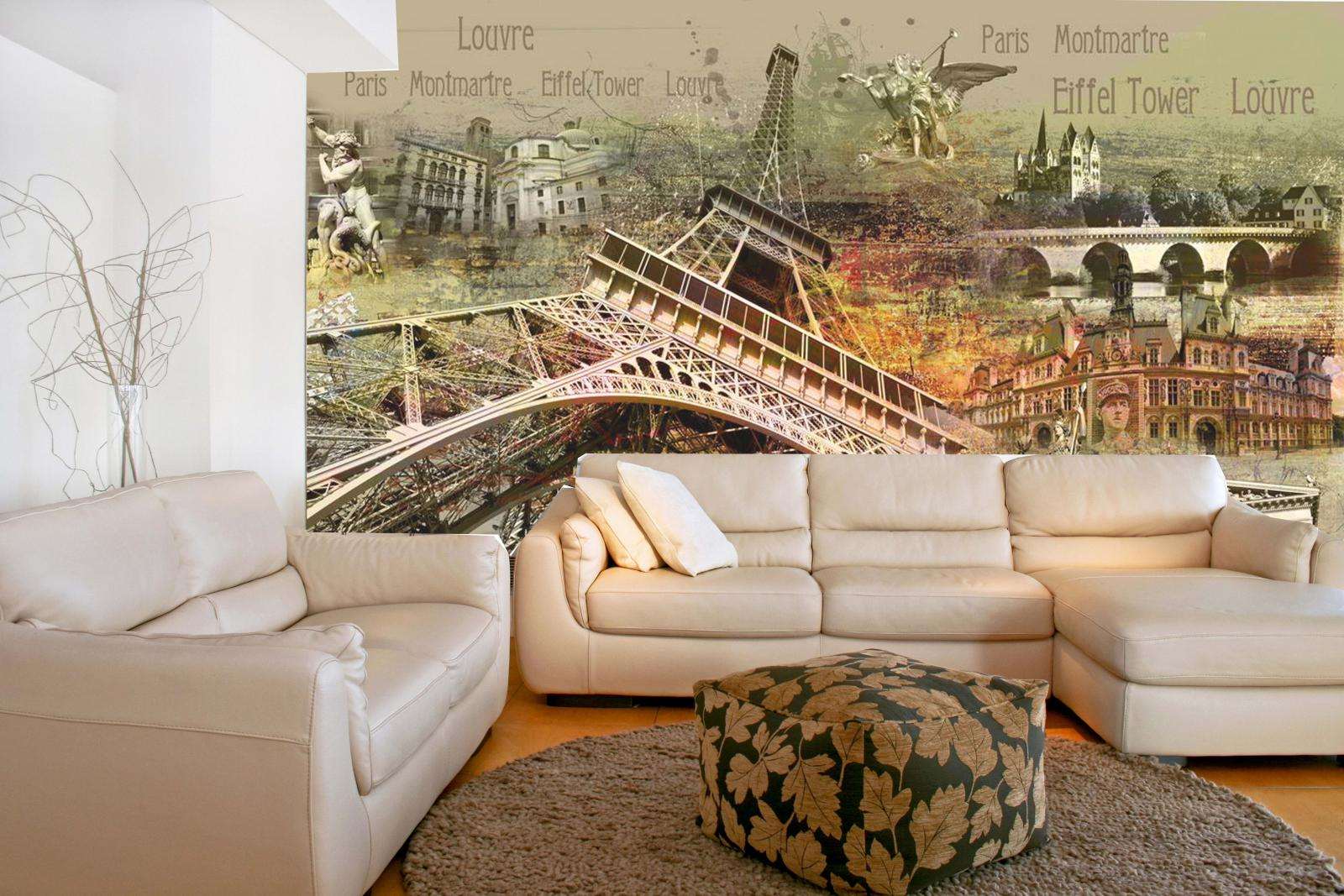
Murals with a picture of the Eiffel Tower on the wall
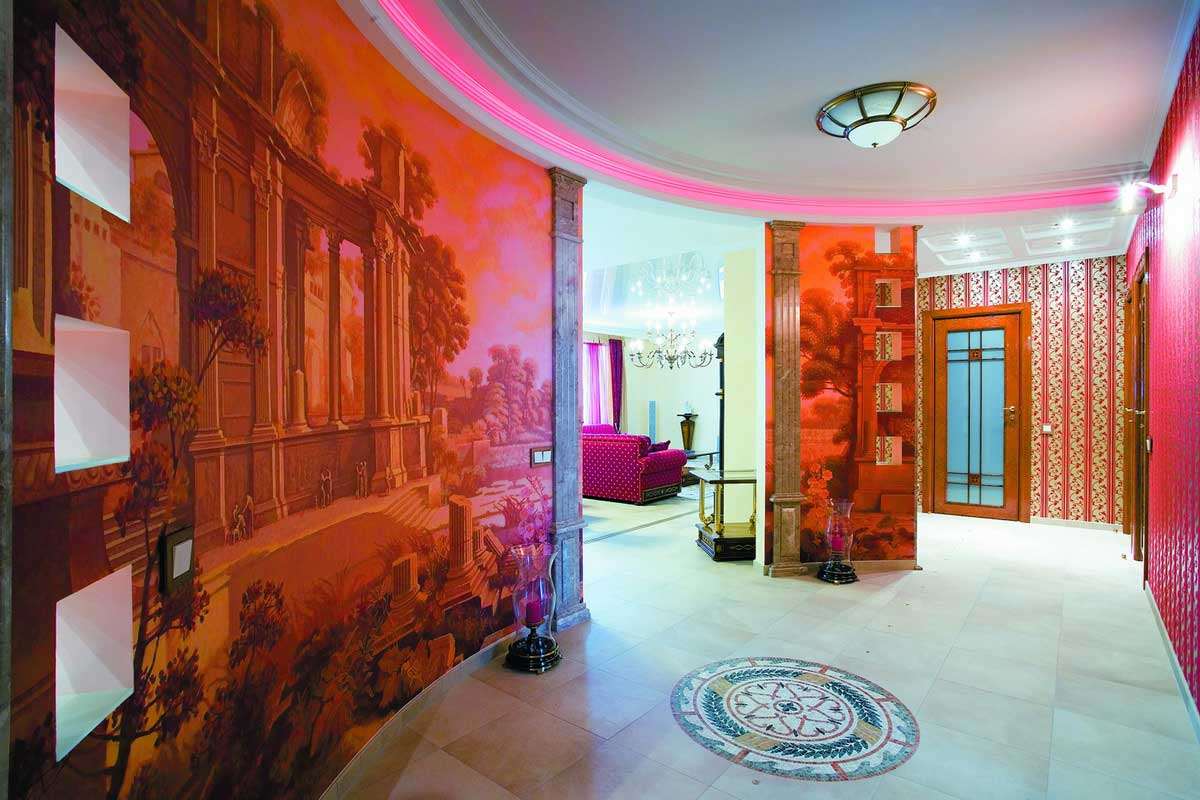
Frescoes on the wall in the interior

Beautiful landscape on the wall
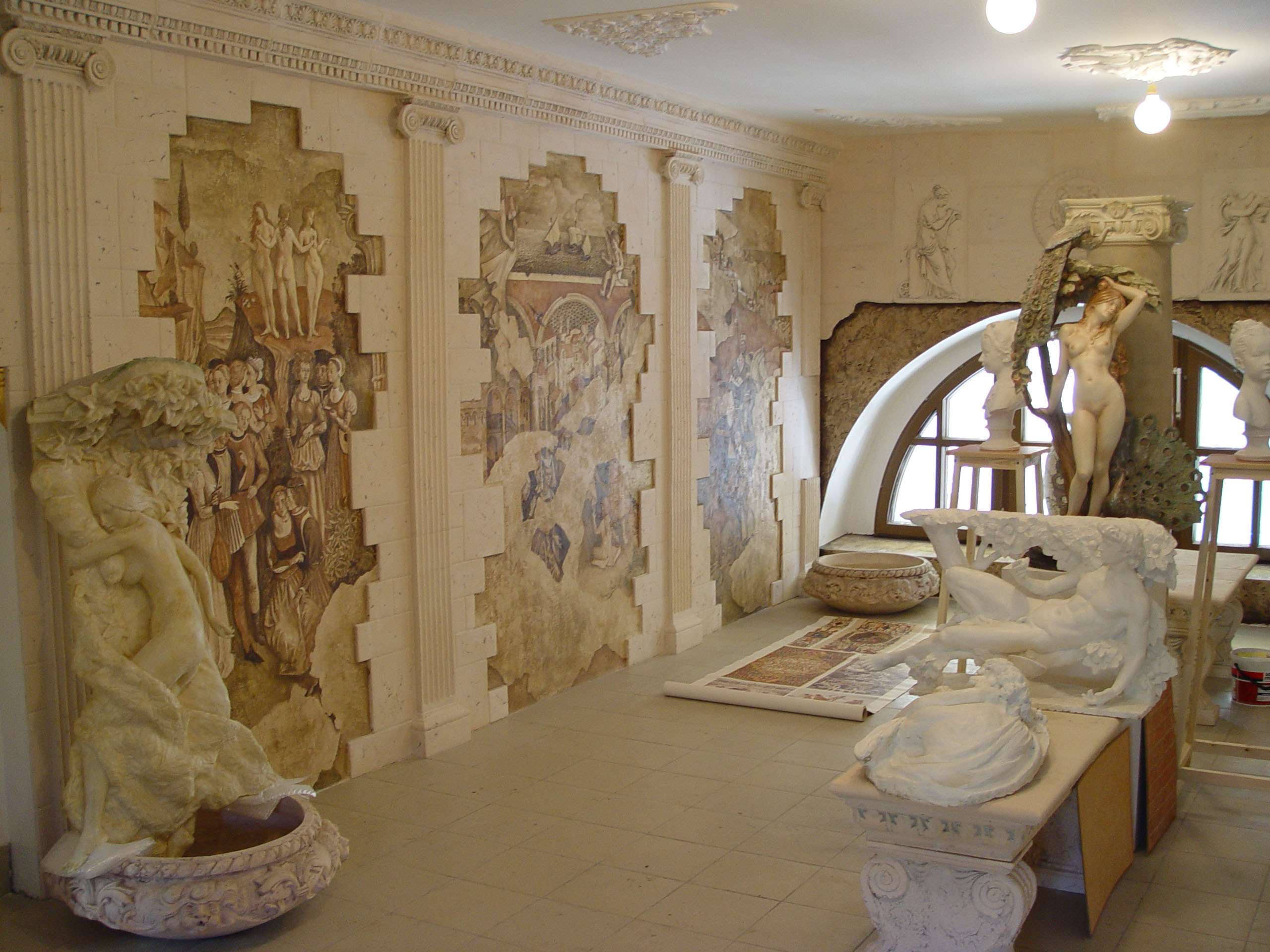
Wall decor with murals
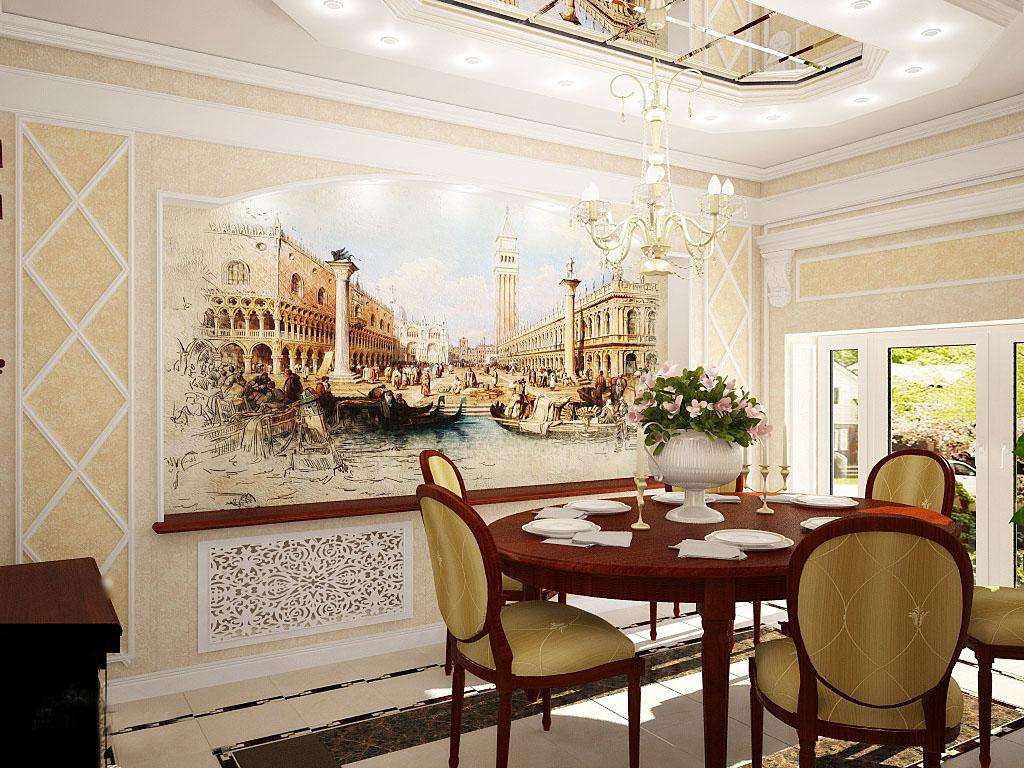
Beautiful large drawing on the living room wall
In the bathroom, the element of water dominates, there you can depict a miniature with fish or mythical creatures from the underwater world.
Tip. Now they use murals in the stylish interior of the children's room. There you can use images from your favorite baby cartoons or funny little animals.
How to glue a mural
If you decide to choose a finished mural for the house, then you can attach it yourself. But if the surface to be glued is uneven or of complex configuration, you may need the help of professionals. Many hire a master only if they order hand-painted. In this case, the work is carried out in several stages.
- Use a spatula to remove old paint or wallpaper. You may need to wash the wall.
- First, the surface is treated with a primer.
- Using putty, close cavities and cracks.
- Defects are covered with cement plaster.
- After the surface is ground using a board moistened with water.
- When the wall dries, apply the plaster.
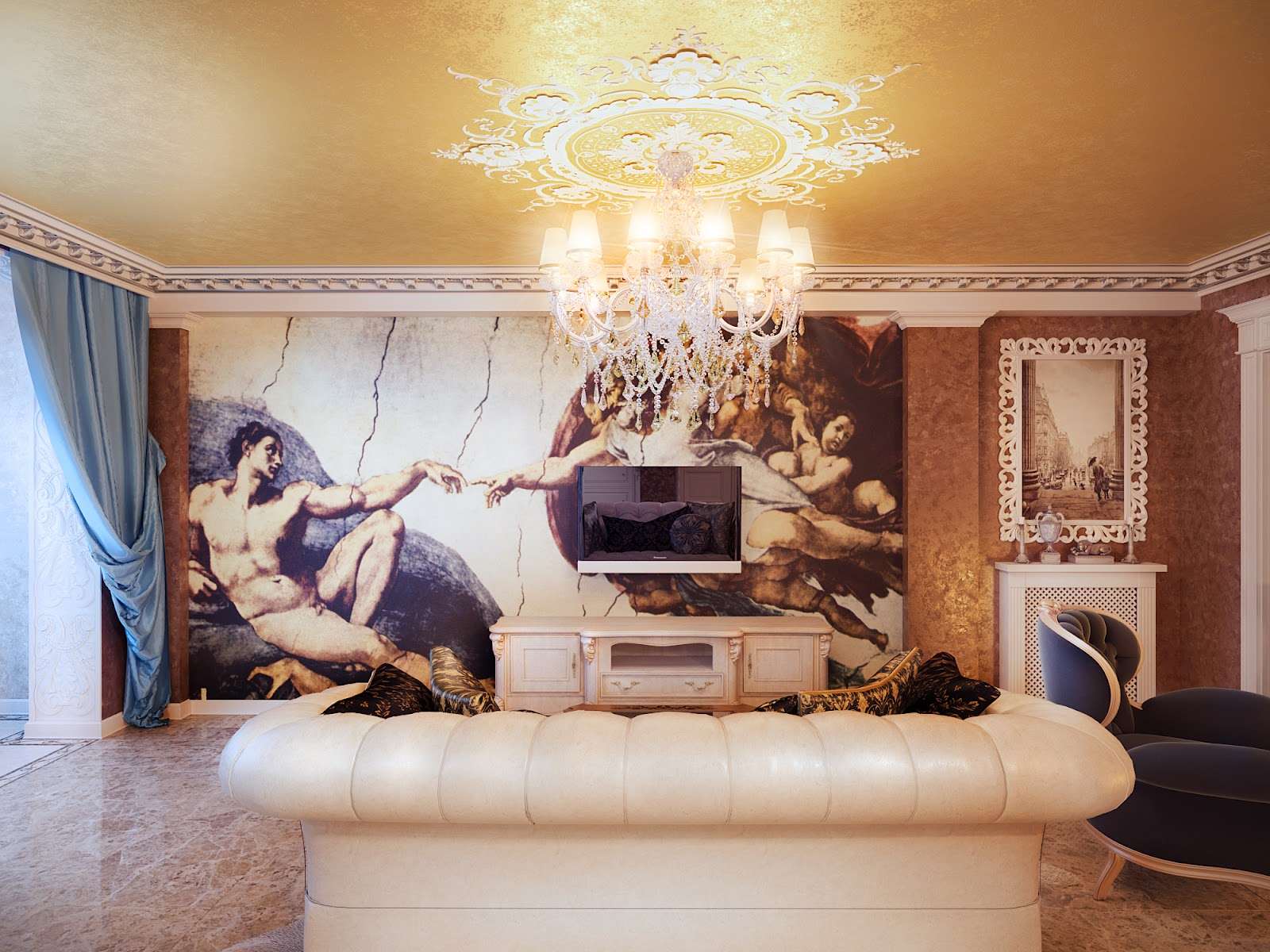
Large murals on the wall in the interior
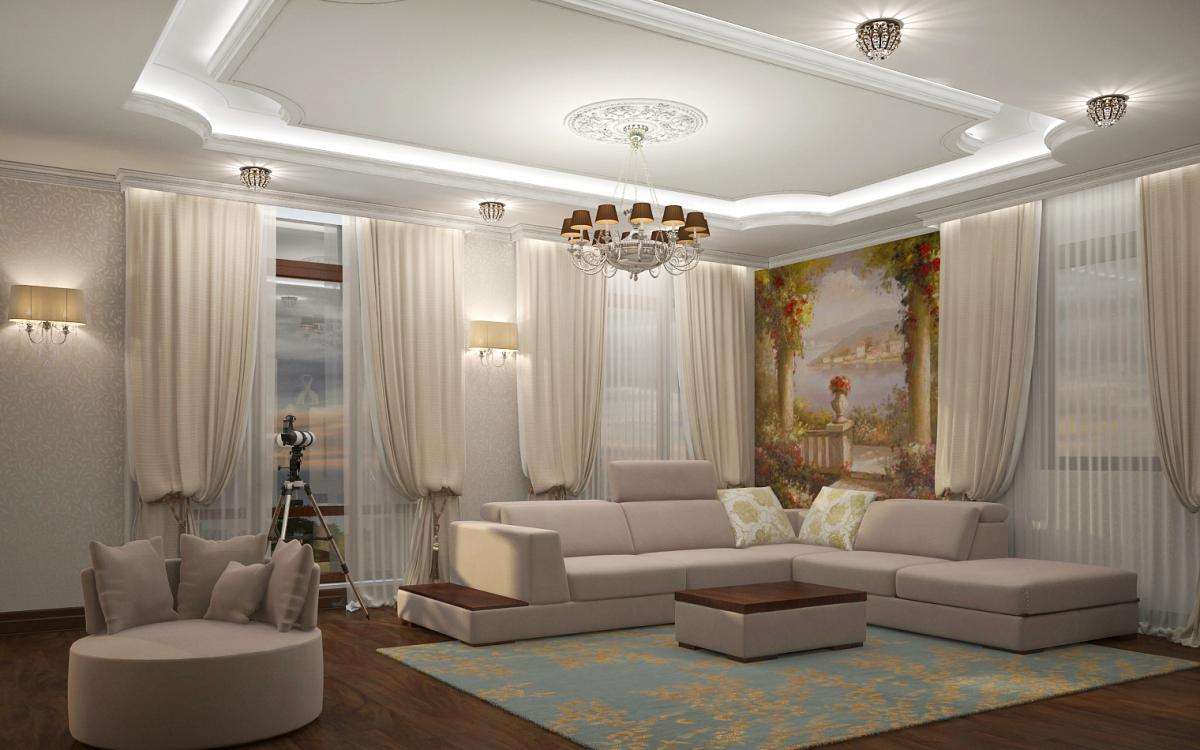
Living room design with murals.
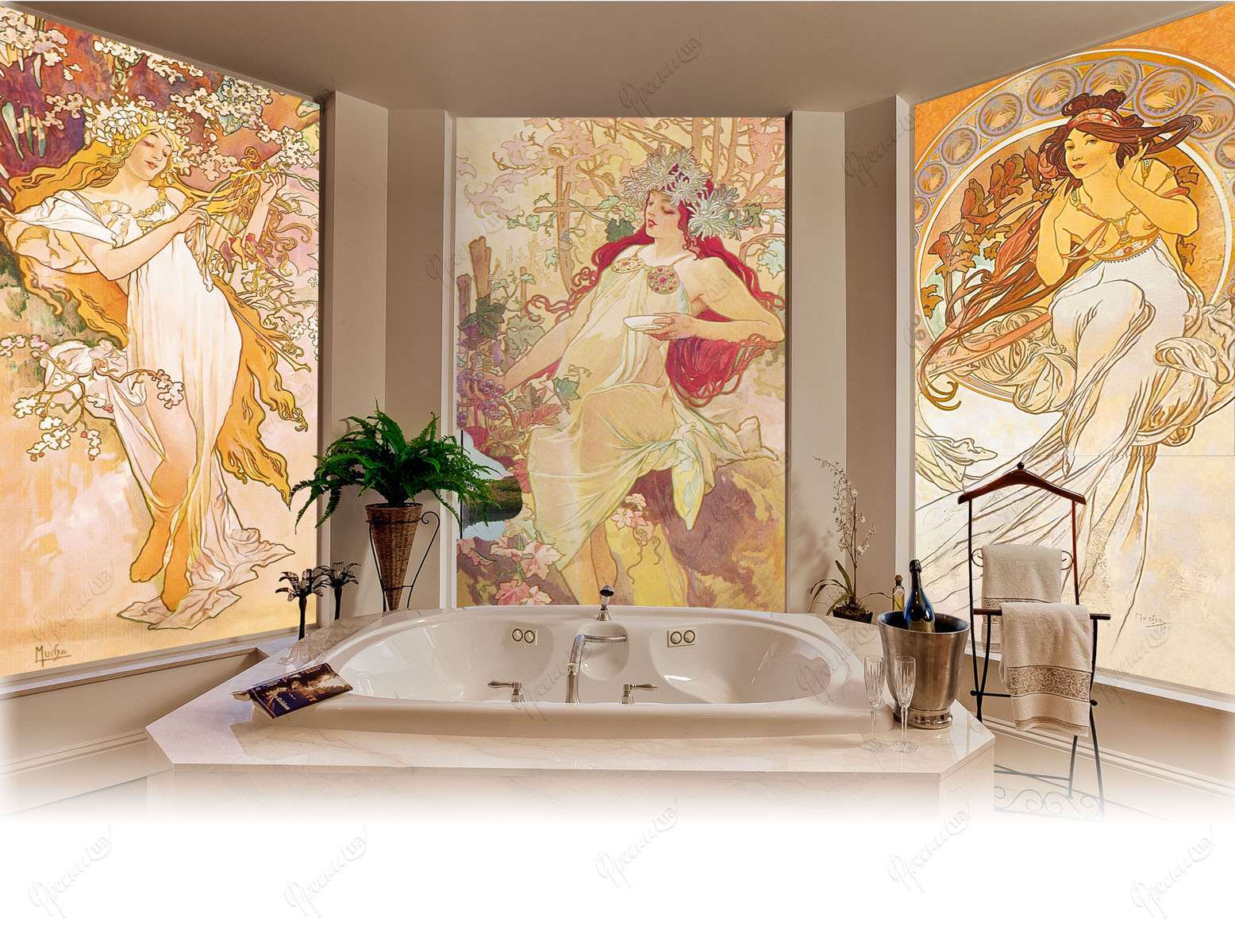
Bathroom with murals
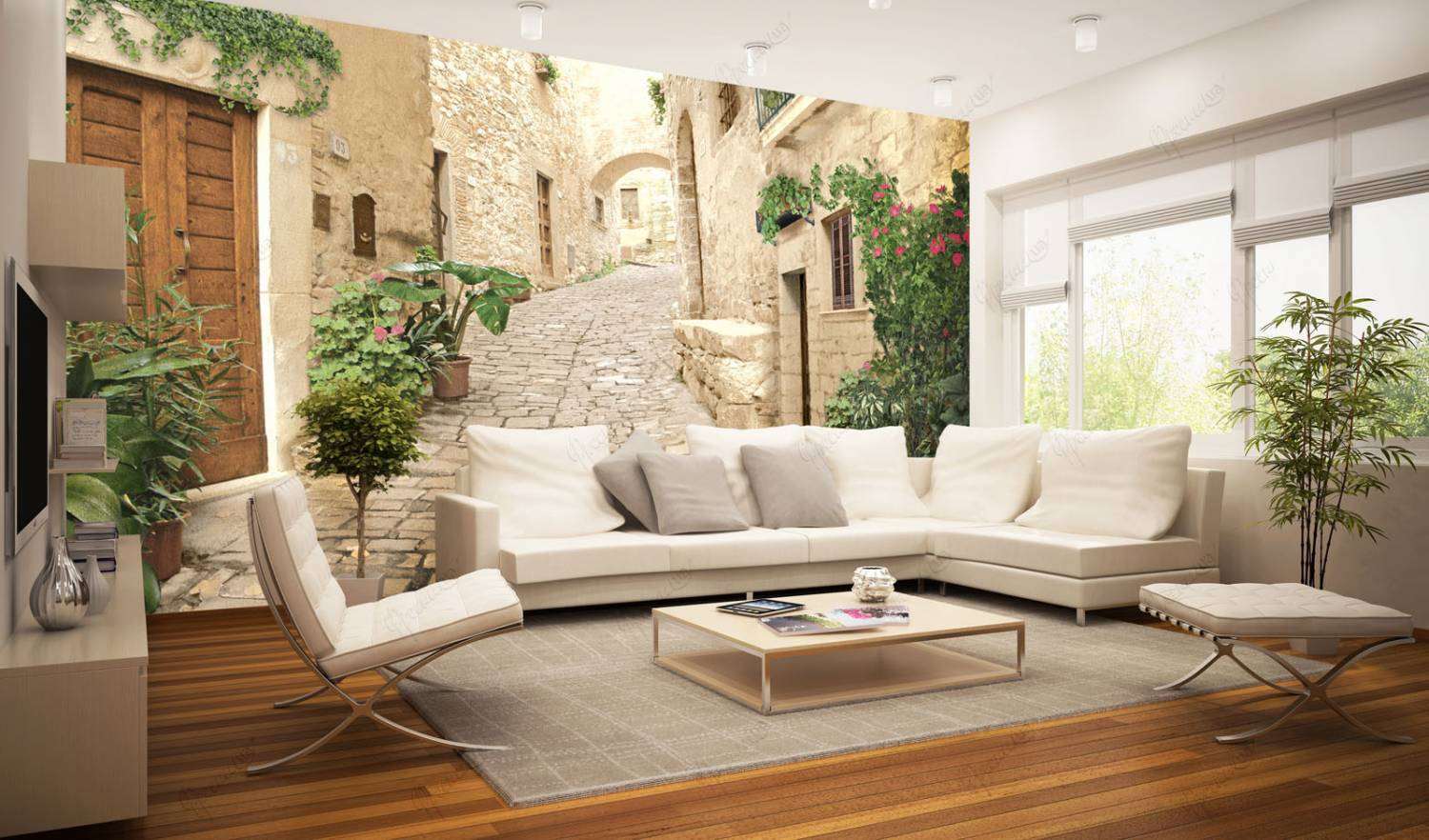
Frescoes in the interior of the living room
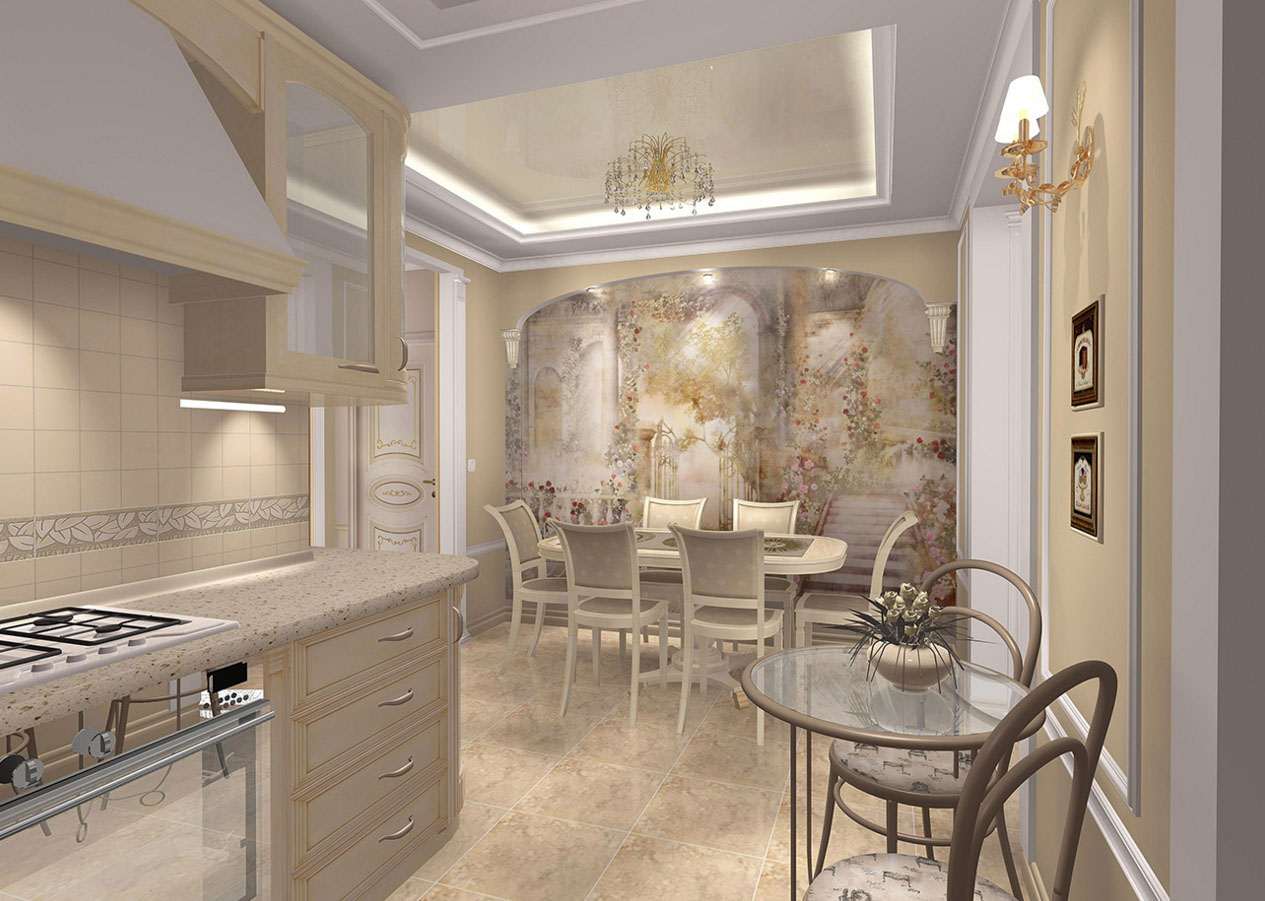
Frescoes in the interior
The drawing is applied according to a pencil sketch or using a stencil. Now you can proceed to the application of the paint layer. For convenience, the pattern is applied from top to bottom. In conclusion, you can fix the result using varnish.
As for the non-woven murals, it is most convenient to use modern seamless patterns at home. A roll of 3 meters wide is often enough to close the entire wall. If you have previously been involved in wallpapering, there should be no problem.
Video: Frescoes on the wall. Decorative wall covering. Frescoes in the interior
